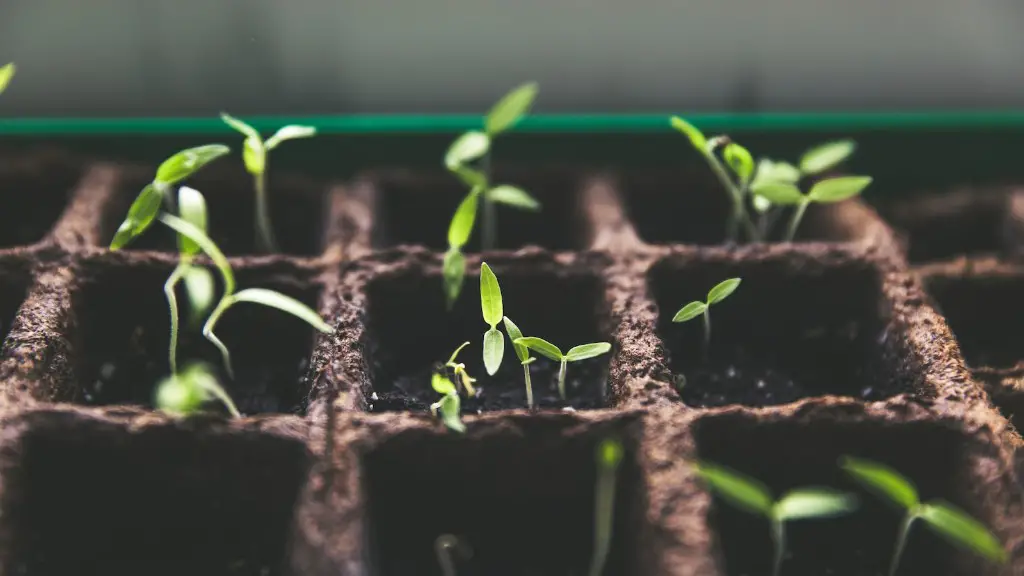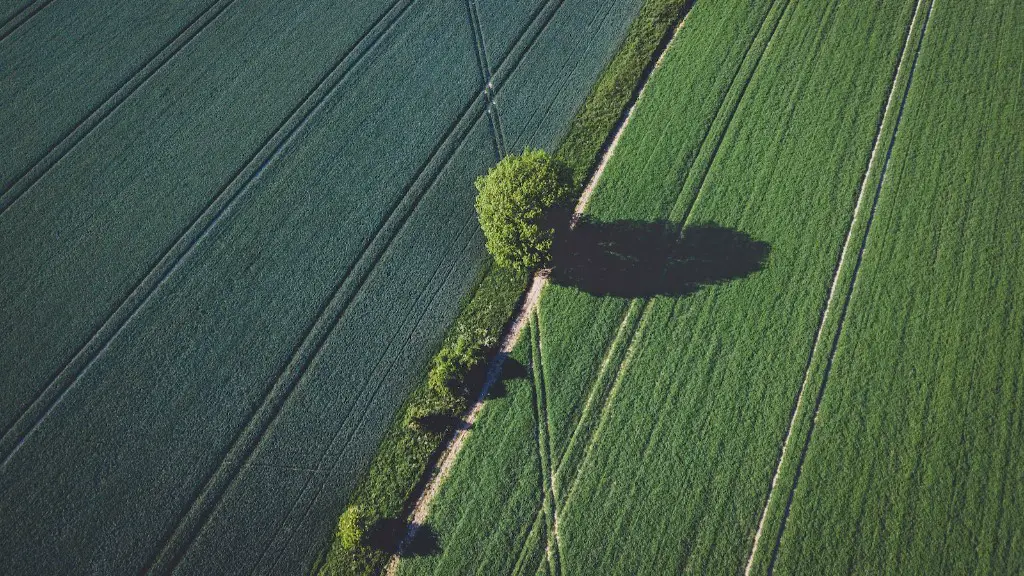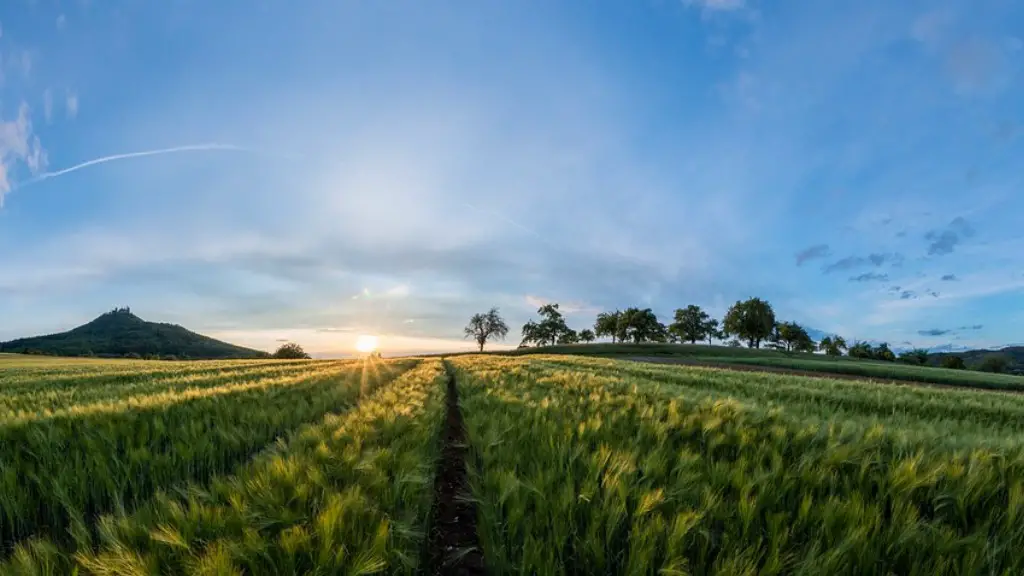Greece is a country full of biodiversity and lush greenery, largely due to its varied terrain, distinct climate and important agricultural practices. With its rich history, Greece’s agriculture not only feeds its people, but provides jobs and sustenance to many parts of the world. From ancient times to the present, it has been integral in the Greek way of life, yet has evolved dramatically over time to meet the needs of its citizens. In this blog post, I will explore the unique factors that have shaped Greek agriculture, its abundant crops and why it is so important today.
Greece’s Unique Terrain
Greece boasts a range of terrains, including mountain ranges, plains, and islands. Along with the varied climate, this diverse terrain offers excellent opportunities for a diverse range of crops to be planted. This is depicted in the multitude of grapes, olives, herbs and grains, such as wheat, oats, rye and barley that can be found in Greece. Additionally, Greece’s dry and hot summers, mild winters and soil rich in limestone, give it optimal conditions for growing a variety of fruits, vegetables, herbs and other crops.
History of Greek Agriculture
Agriculture has always been an integral part of Greek life and culture, with the production and consumption of food forming the basis of its economy. Historical evidence suggests that the development of agriculture in Greece dates back to the times of the Mycenaean civilization, when farms were manually irrigated and organized into settlements. Over time, this evolved into a much more developed agricultural system, with advanced irrigation systems, domestic farming animals, crop rotation, and the use of pesticides.
Crops in Greece
Greece is home to a variety of fruit, vegetables, and other crops. Wheat, barley, oats, olives, grapes, and citrus fruits are some of the most widely-grown crops, often consumed fresh or dried, or used as ingredients in recipe dishes. Furthermore, Spices such as Oregano and Thyme are widely used for flavoring dishes. Greek honey, produced in the country’s mountainous regions, is renowned for its high quality, and Greek olive oil is celebrated for its distinctive taste and texture.
Agricultural Production and Exports
Agricultural production makes up a sizable chunk of Greece’s economy, providing jobs for a large segment of the population. This production also powers Greek exports, with several of its agricultural products being widely sought-after throughout the world. Olive oil, olives, wheat, and cheese are some of Greece’s most popular exports, supplying countries such as Germany, the United States and Canada with much-needed ingredients.
Modern Agricultural Practices
Over the last few decades, large-scale investments in modern agricultural practices have been made, utilizing sophisticated machinery and technology to enhance efficiency and increase production. Subsidies and tax exemptions have been given to farmers, encouraging them to adopt modern techniques, resulting in improved crops yields and better quality products.
Organic Farming in Greece
Organic farming has also become a popular practice in Greece in recent years, in which natural methods are adopted to grow and harvest crops. Organic grapes, olives and citrus fruits, as well as honey, olive oil and dairy products, are some of the most in-demand organic products in Greece. This movement towards organic farming helps not only sustain the environment but also ensure that products are of the highest quality for customer satisfaction.
Sustainability in Greek Agriculture
A high priority has been given to sustainability and environmental awareness, with Greek farmers engaging in practices to minimize water use and reduce the adverse impact of agricultural production on the environment. Government initiatives such as GlobalGAP have been introduced to encourage farmers to adopt a sustainable approach to agriculture and promote eco-friendly and efficient methods of agricultural production.
Cultural Significance of Agriculture in Greece
Agriculture plays an important role in Greek culture, with its close connection to the land and religious ceremonies. During events such as Easter, dance and customs involving planting and harvesting of crops still take place. In addition, popular Greek dishes showcasing agricultural products such as olives and feta cheese are cherished by both locals and visitors alike.
Investments in Greek Agriculture
In an effort to support agricultural businesses and drive job creation, the Greek government has made several investments in its agricultural sector. These investments have included recently infrastructure programs, such as the introduction of high-speed internet services in rural areas, making it easier for farmers to access online markets, as well as subsidies and other incentives. These are helping to ensure that agriculture remains an important part of the Greek economy for years to come.
Government Support for Greek Farmers
The Greek government is also providing support for the nation’s agriculturists. A range of grants and loans are available to farmers, encouraging them to set up small businesses and to innovate in their fields. Additionally, the government is investing in rural development initiatives, helping to establish infrastructure, such as roads and water supplies, in farming communities.
Agricultural Tours in Greece
Agricultural tourism has also become popular in Greece in recent years. Tourists can experience the culture, learn about different agricultural practices, and even pick their own fruit and vegetables or help with cultivation in some locations. This is a unique way to discover the culture and history of Greek agriculture, while also supporting small-scale farmers and local economies.


